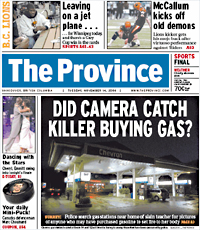| |||||||||||||||||||||||||||||||||||||||||||||||||||||||||||||||||||||||
55 seats of the Legislative Assembly of British Columbia 28 seats were needed for a majority | |||||||||||||||||||||||||||||||||||||||||||||||||||||||||||||||||||||||
|---|---|---|---|---|---|---|---|---|---|---|---|---|---|---|---|---|---|---|---|---|---|---|---|---|---|---|---|---|---|---|---|---|---|---|---|---|---|---|---|---|---|---|---|---|---|---|---|---|---|---|---|---|---|---|---|---|---|---|---|---|---|---|---|---|---|---|---|---|---|---|---|
| |||||||||||||||||||||||||||||||||||||||||||||||||||||||||||||||||||||||
| |||||||||||||||||||||||||||||||||||||||||||||||||||||||||||||||||||||||
The 30th general election for the Canadian province of British Columbia was held to elect members of the Legislative Assembly of British Columbia. The election was called on July 24, 1972, and held on August 30, 1972. The new legislature met for the first time on October 17, 1972. David Barrett led the social democratic New Democratic Party to victory, winning a majority government.

British Columbia is the westernmost province of Canada, located between the Pacific Ocean and the Rocky Mountains. With an estimated population of 5.016 million as of 2018, it is Canada's third-most populous province.

The Legislative Assembly of British Columbia is one of two components of the Parliament of British Columbia, while the other is Elizabeth II, Queen of Canada, represented by the Lieutenant Governor of British Columbia.
David Barrett, was a politician and social worker in British Columbia, Canada. He was the 26th Premier of British Columbia for three years between 1972 and 1975.
Contents
The Social Credit Party, led by Premier W.A.C. Bennett, was defeated after governing British Columbia since the 1952 election. Social Credit's share of the popular vote fell by over 15 percentage points, and the party lost 28 of the seats it had won in the previous election.
The Liberal Party held onto its five seats, while the Progressive Conservative Party, under the leadership of Derrill Warren, returned to the legislature for the first time since the 1953 election by winning two seats.
The British Columbia Conservative Party, formerly the British Columbia Progressive Conservative Party, is a provincial political party in British Columbia, Canada. From the early 1900s until the 1950s, the Conservatives were, along with the British Columbia Liberal Party, one of the two major parties in the province. Since the 1950s, the party has gradually declined in prominence, last winning a seat in a 1978 by-election. The Conservatives enjoyed a brief resurgence after Liberal MLA John van Dongen joined the party in 2012, and won nearly 5% of the vote in the 2013 provincial election. The party plays a minor role in provincial politics today.
In four ridings and part of a fifth, a referendum was held concurrently with the election.
Social Credit ran a lackluster campaign beset by gaffes. A week before the general election, cabinet minister Phil Gaglardi remarked to a newspaper that Bennett would resign after the election, calling him "an old man who doesn't understand what is happening with the young people of this province". [1] The remark proved damaging, bringing the issue of whether Bennett and his party were worn out after 20 years in office to the forefront of the campaign. [2] A pre-campaign visit by Bennett and his cabinet to New Westminster turned violent after they were confronted by demonstrators, who injured eight ministers, a melee for which Bennett tried to blame Barrett. [2] Shortly after the Social Credit campaign started, Bennett was tricked into shaking hands with current Progressive Conservative leader Derril Warren in front of a photographer from The Province . After the photograph, depicting a smiling Warren and scowling Bennett, was published on The Province's front page, Bennett spent the rest of the campaign antagonising the media, refusing to tell reporters where he was appearing. [2]
Philip Arthur Gaglardi, sometimes known as Flying Phil was a politician in the Canadian province of British Columbia. He is best known for his service as Minister of Highways in the BC government from 1955 to 1968.

New Westminster is a city in the Lower Mainland region of British Columbia, Canada, and a member municipality of Metro Vancouver. It was founded by Major-General Richard Moody as the capital of the new-born Colony of British Columbia in 1858, and continued in that role until the Mainland and Island Colonies were merged in 1866, and was the Mainland's largest city from that year until it was passed in population by Vancouver during the first decade of the 20th Century.

The Province, one of the two major daily newspapers in British Columbia, is a tabloid published in British Columbia by Pacific Newspaper Group, a division of Postmedia Network Inc. alongside the broadsheet newspaper The Vancouver Sun, the other major daily newspaper in British
Barrett benefited from his youth, allowing the media to contrast him with the aged Bennett, and ran a campaign focused on "people issues" such as urban transit, public auto insurance, and increased royalties from the province's timber and minerals industries. [2] Late in the campaign, Bennett declared at a Social Credit rally, "The socialist hordes are at the gates of British Columbia!" [2]
Public auto insurance is a government-owned and -operated system of compulsory automobile insurance used in the Canadian provinces of British Columbia, Saskatchewan, Manitoba, and Quebec. It is based on the idea that if motorists are compelled to purchase auto insurance by the government, the government ought to ensure motorists pay fair premiums and receive high-quality coverage. Governments across the country have used various insurance schemes - from full tort to full no-fault - in pursuit of this goal.
Although Bennett's campaign had been lacklustre, no commentators anticipated the party's loss. The resulting NDP majority came as a surprise. [3] Historian David J. Mitchell wrote, "The surprise was not just [the Social Credit] defeat, but its magnitude." [1] [2] In his victory speech, Barrett told supporters that ten thousand people had worked for 40 years to get the NDP and its predecessor, the Co-operative Commonwealth Federation, elected into office, and vowed, "I will not let their hopes or aspirations down." [2]






